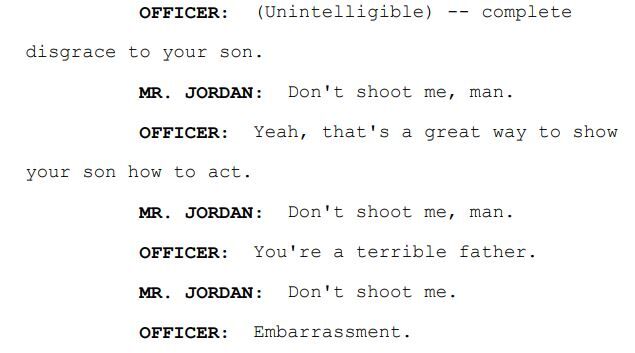10th Circuit reinstates excessive force, illegal arrest claims against Adams County deputies

The federal appeals court based in Denver reinstated a man’s claims against two Adams County deputies on Tuesday, agreeing that a jury could find the deputies arrested him simply because he was criticizing their investigation tactics, and not because he committed any crime.
Deputies Chad Jenkins and Michael Donnellon arrested John Jordan while they were investigating a vehicle accident involving Jordan’s nephew. At the time, Jordan was assisting the deputies by trying to obtain insurance information for the vehicle. But Jordan intermittently asked the deputies to let his nephew tell the story himself, which prompted Jenkins and Donnellon to arrest him for alleged interference.
A three-judge panel of the U.S. Court of Appeals for the 10th Circuit concluded a trial judge incorrectly ruled in the deputies’ favor, rather than sending Jordan’s lawsuit to a jury trial.
“We conclude that, when the facts are viewed in the light most favorable to Mr. Jordan at this stage in the proceedings,” wrote Senior Judge David M. Ebel, “his verbal criticism was clearly protected by the First Amendment, thereby meaning that there could be no arguable probable cause for his arrest based on that conduct.”
Jenkins has a history of civil rights lawsuits filed against him. So far, courts have awarded him immunity – first, when he directed two unlicensed teenagers to drive a defective truck home in the dark, which led to them running a stop sign and being killed in a traffic accident. Also, the 10th Circuit found him not liable for excessive force when Jenkins fractured a motorist’s ribs.
Two weeks after Jenkins injured the motorist, he responded to the traffic accident involving Jordan’s nephew.
Case: Jordan v. Adams County Sheriff’s Office
Decided: July 18, 2023
Jurisdiction: U.S. District Court for Colorado
Ruling: 3-0
Judges: David M. Ebel (author)
Harris L Hartz
Scott M. Matheson Jr.
Background: 10th Circuit agrees Adams County deputy who fractured motorist’s ribs not liable for excessive force
Jordan arrived in Bennett, where the accident happened, and called his company to obtain insurance information for the vehicle, which his nephew was driving. Jordan remained on the sidewalk and the call was recorded, capturing his interaction with the deputies.
While on hold, Jordan called over to Donnellon and Jenkins to ask if they were “taking a statement or are you giving a statement.” He elaborated that the deputies appeared to be steering the witnesses’ answers.
Donnellon began yelling about Jordan’s “attitude and your behavior.”
“You are a complete disgrace,” he said.
“Don’t shoot me, man,” Jordan responded.
“You’re a terrible father,” Donnellon continued. An “embarrassment.”
Jordan reiterated his request to let the witnesses “give their statements.” Jenkins then told Jordan to put his hands behind his back. Jordan continued to talk on the phone, which captured the sounds of a struggle.
Jordan alleged in his lawsuit that Jenkins “attacked” him and took him to the ground, with Donnellon kicking him and pushing his face into the dirt. The deputies arrested him for obstruction and resisting arrest. At the jail, Jordan was not allowed to keep his undergarments, which he said were integral to his Mormon faith.
Prosecutors eventually dropped the charges.

In January 2022, U.S. Magistrate Judge Scott T. Varholak awarded the deputies qualified immunity for most of Jordan’s claims. Qualified immunity is a judicial doctrine that generally shields government employees from civil liability unless they violate a person’s clearly established legal rights.
Noting that Jordan “refused to put his hands behind his back as ordered,” Varholak found no clear use of unconstitutional force. Moreover, because Jordan was yelling “so loud that the officers could neither be heard by witnesses, nor hear witnesses’ answers,” he found the deputies had probable cause to arrest Jordan for obstructing their investigation.
Varholak did believe a jury should decide whether the sheriff’s office violated Jordan’s First Amendment rights by confiscating his religious undergarments at the jail. After a trial last May, jurors concluded the office did infringe on Jordan’s religious beliefs, but had a legitimate reason for doing so.
On appeal, Jordan argued Vaholak should have sent his other claims to a jury as well.
“There are two versions of the arrest. In our version, Mr. Jordan was arrested because he was ridiculing the police,” attorney Robert M. Liechty told the 10th Circuit panel at oral arguments. “They say, ‘He was yelling so loudly we could not hear the nephew and the other witnesses’ response to our question.’ That’s just not true.”
“He told the officers they shouldn’t be making the statement and the witnesses should. Why wouldn’t that be interfering?” asked Judge Scott M. Matheson Jr. “They need to be able to do their job.”
“He never said to the witnesses, ‘Don’t answer the police officers. Don’t cooperate,'” Liechty responded.
The panel ultimately agreed with him. Ebel noted the First Amendment protects the right to criticize police, even in the vicinity of an investigation.
“Otherwise, an officer could easily stop the protected criticism by simply asking the individual to leave, thereby forcing them to either depart (which would effectively silence them) or face arrest. This would render the right to criticize hollow,” he wrote in the July 18 opinion.
Jordan’s right to be free from arrest under the circumstances was clearly established, Ebel continued, and Varholak wrongly resolved the case in the deputies’ favor without letting a jury determine whose version of events was correct.
The case is Jordan v. Adams County Sheriff’s Office et al.














